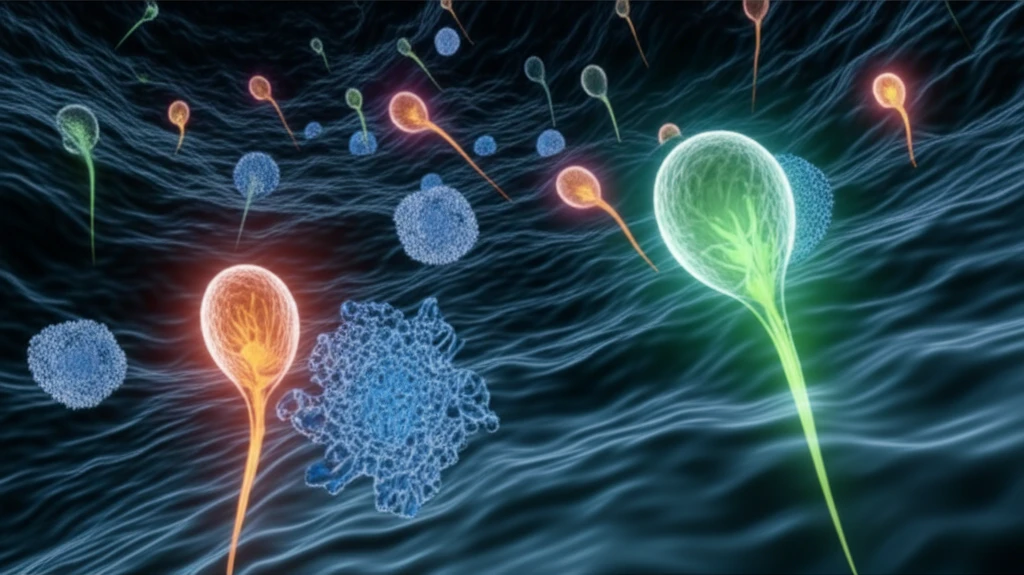
Decoding Pituitary Development: How Beta-Catenin Holds the Key
"Unlocking the Secrets of Hormonal Balance: A New Look at Pituitary Gland Development and Potential Therapies for Hormone Deficiencies"
The pituitary gland, a small but mighty organ nestled at the base of the brain, orchestrates a symphony of hormones that regulate growth, reproduction, and our response to stress. When this gland malfunctions, it can lead to combined pituitary hormone deficiency (CPHD), a condition where multiple essential hormones are lacking, significantly impacting overall health and well-being.
Understanding how the pituitary gland develops is crucial to finding better ways to treat and prevent CPHD. This development relies on a delicate dance of various factors, including the WNT signaling pathway and a protein called beta-catenin. Scientists have long known that beta-catenin plays a vital role in forming specific hormone-producing cells within the pituitary, but the precise timing and mechanisms of its action have remained elusive.
Recent research has delved deeper into the intricacies of beta-catenin's role, focusing on a critical period in pituitary development after the initial formation of progenitor cells, but before they commit to becoming specific hormone-producing lineages. By manipulating beta-catenin levels during this window, researchers have uncovered new insights into its influence on pituitary development and potential implications for treating hormone deficiencies.
Beta-Catenin: The Master Regulator of Pituitary Cell Fate

The study zeroes in on canonical WNT signaling, a pathway dependent on beta-catenin accumulation within cell nuclei. Prior investigations established that diminished beta-catenin during the initial formation of pituitary progenitors impedes the transcription of Pou1f1, a crucial gene for specific pituitary cell types. Conversely, amplified beta-catenin in early progenitors leads to the development of craniopharyngiomas, benign tumors that disrupt hormone production.
- Loss-of-Function Studies: Deleting beta-catenin at this stage resulted in reduced canonical WNT signaling and a decrease in essential hormone-producing cells (somatotropes and thyrotropes). The cells intended to produce these hormones shifted towards creating corticotropes.
- Gain-of-Function Studies: Conversely, increasing beta-catenin led to dysmorphic pituitaries and a loss of all hormone expression, indicating a blockage of regular differentiation.
- Sensitivity Window: These outcomes show that pituitary progenitors remain remarkably sensitive to beta-catenin levels, highlighting the importance of tightly controlled WNT signaling during this developmental period.
Future Directions: Towards Targeted Therapies
This study emphasizes the critical role of precisely regulated WNT signaling, mediated by beta-catenin, in directing pituitary progenitor cell fate. Disruptions in this balance can lead to hormone deficiencies or tumor development, highlighting the therapeutic potential of targeting this pathway.
Future research should investigate the specific WNT ligands and receptors involved in promoting canonical WNT signaling in pituitary progenitors. A more comprehensive understanding of these interactions could pave the way for developing targeted therapies that selectively modulate WNT signaling to restore hormone balance in CPHD patients or prevent ACP formation.
Moreover, exploring the mechanisms that govern B-catenin expression and protein levels during pituitary development is crucial. Identifying the factors that limit B-catenin accumulation could provide insights into preventing tumor formation and promoting healthy pituitary function. By continuing to unravel the complexities of pituitary development, we can move closer to effective treatments for a range of hormonal disorders.
